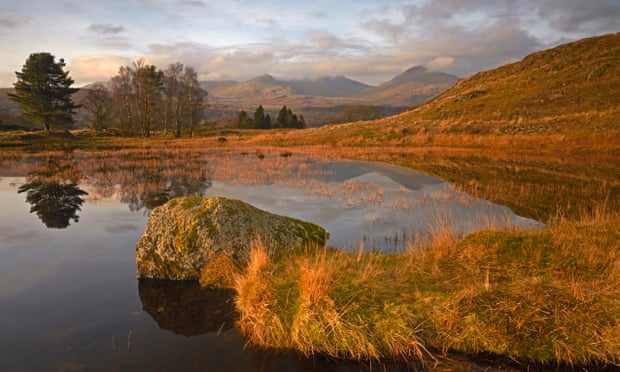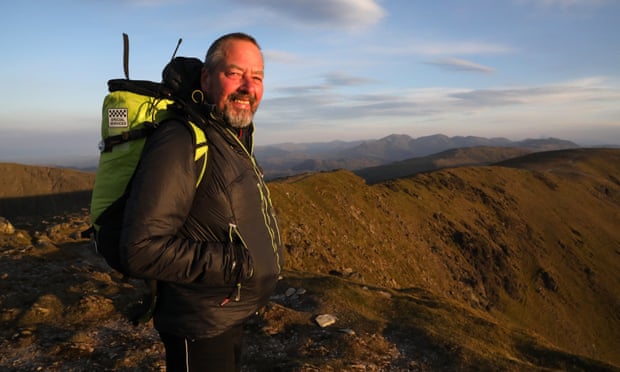We begin in darkness and head up towards the light.
It is that time just before the dawn when it’s neither day nor night. Down near Lake Coniston, I can hear an owl and a curlew calling, both claiming the hour for themselves. “I like to come this early,” says Sion. “There’s no one else around. I can’t handle crowds. I get confused.”
It’s 4.30am and I am with Sion Jair, 67, and his partner, Wendy Kolbe, 63, and we are heading up the Old Man of Coniston, an 803-metre Lake District fell noted for its sharp ascent and great panoramas of southern lakeland. Or at least we hope so: there are some clouds massing in the east.
For Sion, this has become a daily ritual, adopted seven years ago when a visit to the doctor changed his life for ever. “I had been feeling permanently tired, and suffering some memory problems. It meant I couldn’t get out walking, you see, and when I can’t walk, I really shut down.”
After tests, the doctor diagnosed chronic anaemia from vitamin B12 deficiency. Injections usually sort that out, but Sion reacted badly to the shots and, without them, was given three years to live. Determined not to give in, he set about walking in earnest, covering around 10 miles a day. “Eventually, it worked. I reckon it cured me of the chronic fatigue,” he says.
But there was another blow. The anaemia had been masking signs of dementia. Given the particular type of condition he was suffering from, he was warned that he could expect periods of total memory loss, mood swings and eventually the inability to look after himself. Sion had become one of the estimated 25 million people worldwide suffering this progressive neurodegenerative disease, as feared now as the Black Death was in its day.
“It was quite scary,” says Sion, adding, in something of an understatement, “I didn’t like the idea.”
Continued here...
Memory walks
Memory walks
Interesting article
“If you trust in yourself, and believe in your dreams, and follow your star. . . you'll still get beaten by people who spent their time working hard and learning things and weren't so lazy.”

